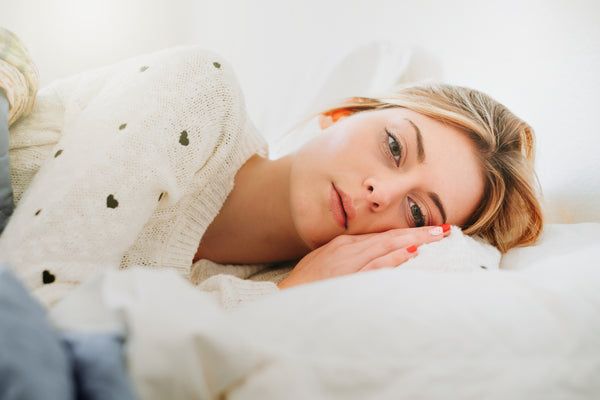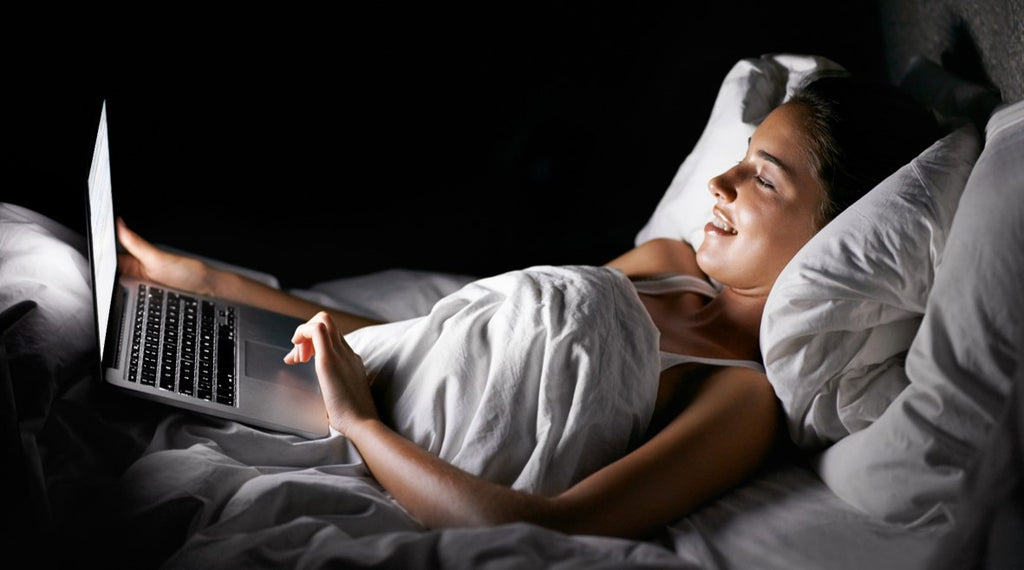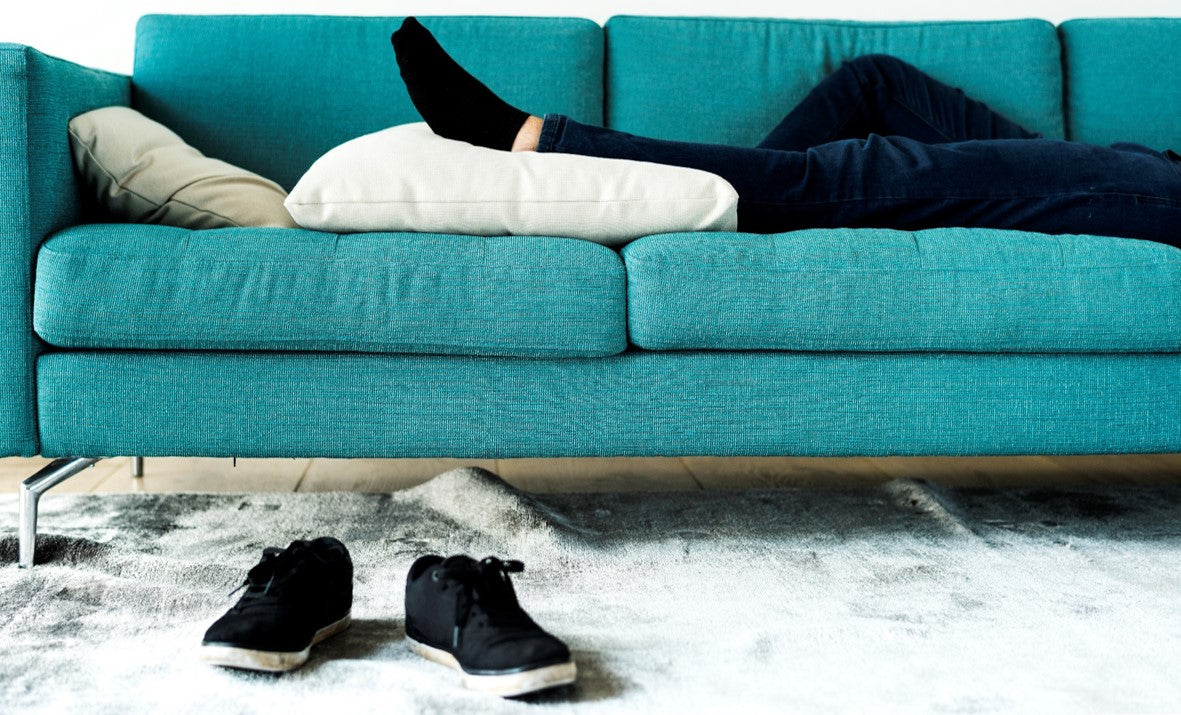- Home
- SHOP ▾
- Store Locator
- Media
- Product Information ▾
- Our Associations ▾
- Warranties ▾
- Advice ▾
- Blog

Do you find it hard to get to sleep or do you wake up during the night thinking about things?
Frustrated and tired do you begin watching the clock and start worrying about not getting to sleep or not getting enough sleep?
If you are finding that you are having difficulty sleeping, try following these tips.
Find a quiet, comfortable place to sit and close your eyes. Focus your mind on your breath, inhaling and exhaling deeply. Continue focussing on your breath. Don’t allow your mind to wander to the days activities or the future. Regularly practicing mindfulness meditation for five minutes or more, can help you relax and let go of your daily stresses. A technique that at bedtime, you can also undertake to help your mind relax and fall asleep.
Exercise has been found to help reduce anxiety and stress. Although hitting the gym, or participating in group sports is not an option right now, make sure you undertake some form of exercise each day. Take a walk around the block or try an online workout or yoga class. It takes as little as 5-10 minutes a day to reduce stress, boost mood and keep the body strong while improving alertness during the day and sleep quality.
Get into a routine of setting aside some time each evening to think about the things that have happened during the day and the things that you need to address tomorrow or in coming days. Jot down the problem, or what is worrying you and make plans or develop possible solutions. Writing things down will help you process what you are thinking about and help you free them from your thoughts when it is time to sleep.
Have your evening meal at least two hours before bedtime and avoid caffeine and alcohol late in the day. Allow your mind and body to relax and wind down at least an hour before bed. Play quiet music, read a book or take a bath. Avoid, the evening news, social media and using screens, which emit blue light.
The blue light emitted from devices such as smartphones, tablets, computers and the TV, can at night all reduce the production of the sleep hormone melatonin. This may result in difficulty sleeping and increased drowsiness during the day.
By keeping us engaged and stimulated they are also hard to walk away from and make it difficult for our brains to relax and wind down at the end of the day.
Keep a regular bedtime, and try to go to bed and wake up at the same time every day. This helps create a natural rhythm, and sleep-wake cycle for your body.
Ensure the bedroom is free of distractions. No televisions, computers, radios and phones.
If your mobile phone is in your room and used as an alarm, ensure it is in do not disturb mode so you are not woken by late night text messages or notifications.
Keep the bedroom dark and ensure the room temperature is not too hot or cold which may make you restless and it difficult to fall asleep. According to the Sleep Council UK
“A cool 16-18°C (60-65°F) is thought to be an ideal temperature in a bedroom. Temperatures over 24°C (71°F) are likely to cause restlessness, while a cold room of about 12°C (53°F) will make it difficult to drop off.”
Make sure your sleep environment is healthy. Dust mites found in bedding are a common cause of asthma, allergies and asthma. Protect-A-Bed mattress, pillow and quilt protectors will provide an allergy barrier against any dust mites living in your mattress or quilts.
“If you get into bed and cannot fall asleep after 20 minutes, get up and return to another space in the house to do a relaxing activity, such as reading or listening to music. Lying in bed awake can create an unhealthy link between your sleeping environment and wakefulness. Instead, you want your bed to conjure sleepy thoughts and feelings only.” - sleepfoundation.org
Getting a good night’s sleep is vital to your health, well being and ability to effectively function during the day, so if you find you are having continuous problems getting a good night’s sleep talk to your doctor.
Sleep well, live well

Whether it is watching TV, playing video games, scrolling through social media or checking emails, electronic devices are a big part of our lifestyle and hard to put down when bedtime approaches.
Although the effects vary between people ‘screen time’ before bed has been shown to impact both our ability to fall asleep and the quality of our sleep.
"Studies have tested the effects of bright tablets (e.g. ipads) and laptop screens for up to 5 hours before bed. It seems that the natural evening rise in melatonin (a hormone that makes us ready for sleep) is not affected by 1 hour of bright screen light, but it is after 1.5 hours. Thus after 1.5 hours of technology use in the evening people report feeling less sleepy. They also do better on mental performance tests and their brainwaves suggest increased alertness. Repeated use of a bright screen over 5 days can delay the body clock by 1.5 hours. This means you consistently want to go to bed later and sleep in longer. This can be a real problem when you need to get up at a set time in the morning for school or work." - sleephealthfoundation.org.au
It may be difficult at first, but once you have made a conscious change it will become habit and part of your everyday routine.
Sleep Well, Live Well

If you are finding yourself feeling tired and sleepy during the day a nap may be beneficial. Reducing fatigue, increasing alertness, improving your mood, performance and reaction time.
A nap may also help you prepare for and be able to better cope with a late night out, shift work or a long drive.
As recognised by the Sleep Health Foundation of Australia
"Naps can also be good at times when you feel sleepy and you are worried about how well you can do things if you continue without rest. If you feel drowsy during a long drive in the car, a short nap can be taken in a rest area. This will make you more alert during the next phase of the drive.
Some studies have found that if you start to feel sleepy while driving, it helps to have a cup of coffee, immediately followed by a nap of about 15 minutes. The caffeine takes about 30 minutes to start working so when you wake up both the nap and the caffeine will start to make you feel more alert."
The secret to waking up refreshed from a nap is setting an alarm and making sure you don’t nap for too long.
Ideally a nap should only be 15-30 minutes long. This will ensure that when you wake you are still in the lightest stage of non-REM sleep. Any longer, where you enter the deeper stages of sleep you risk waking up with what is known as sleep inertia. Feeling groggy and perhaps more tired and with less energy than before your nap.
However “If you’re lucky enough to be able to lie down for 90 minutes, your body should have time to make it through one complete sleep cycle where you go from the lightest stage through the deepest stage of sleep and back again, so you’ll wake feeling refreshed.”- sleep.org
“A cool 16-18°C (60-65°F) is thought to be an ideal temperature in a bedroom. Temperatures over 24°C (71°F) are likely to cause restlessness, while a cold room of about 12°C (53°F) will make it difficult to drop off.” - Sleep Council UK
Be mindful to remember that a nap does not replace a good night’s sleep. A nap too late in the day may make it harder to fall asleep at night. And if you find that you are relying on naps during the day or you are not able to sleep at night due to naps talk to your doctor.